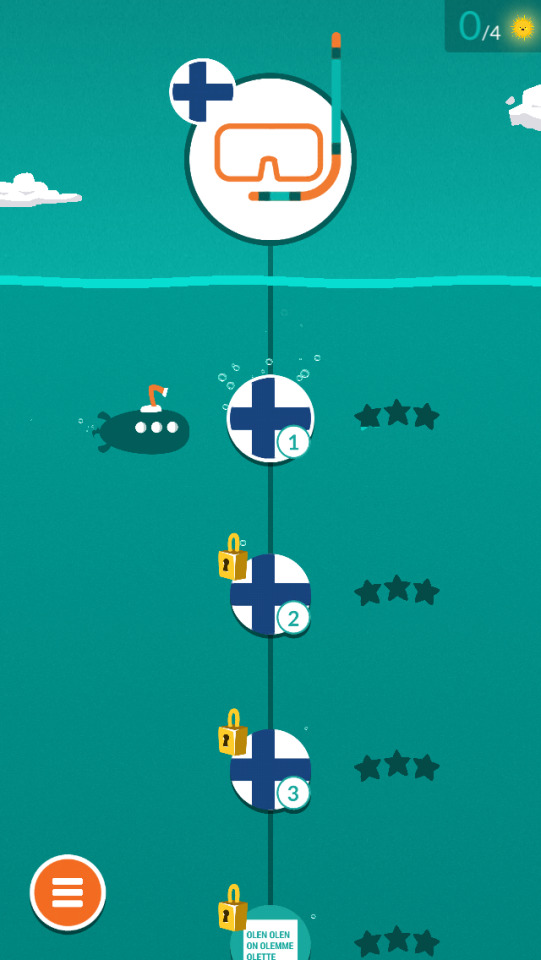Video
Slav pronouncing US states
226K notes
·
View notes
Text
That awesome moment when you're in Austria and you understand a lot of basic German words/expression because you're studying Dutch
and every time you understand something it's a reminder that you're doing good and you should be proud of yourself and I just love language families okay
5 notes
·
View notes
Text
What?!
There are multiple ways to ask this question. Let’s take a look at them:
Что — the simple neutral “what”
Чего — a common colloquial distortion of it
Чё — to get more informal
But Russian also has its wats and wuts:
Што and чо — Padonkaffsky* style misspelling-based jokes
ШТА = WAT (we call the wat grandma «бабушка-ШТА»)
But why not use “ВАТ”as well
Щто/Щито — just used because they look/sound fun, probably imitate a foreign accent

_________
*Padonkaffsky jargon (also Olbansky) is a Russian-based Internet slang that was at the peak of popularity in early 2000-s.
252 notes
·
View notes
Text
dutch word of the day
hartendief- literally “heart thief”- the person who has stolen your heart 💘
48 notes
·
View notes
Text
Japanese Fairy Tale Vocabulary
english - japanese
(note: i did not include an extensive vocab of typical japanese fairy tale creatures/demons, because there are honestly, just too many to list in a post like this. maybe i will make a seperate post about them sometime in the future)

wizard - 魔法使い ( まほうつかい- mahō tsukai )
magic - 魔法 (まほう - mahō)
witch - 魔女 (まじょ - majo)
fairy - 妖精 (ようせい - yōsei)
queen - 女王 (じょおう- joō)
king - 王様 (おう-さま - ō-sama)
princess - 王女 (おうじょ - ōjo)
prince - 王子 (おうじ - ōji)
monster/demon - 悪魔 (あくま - akuma)
ogre/demon - 鬼 (おに - oni)
goblin/monster - 化物 (ばけもの - bakemono)
spirit - 魂 (たましい - tamashi)
ghost/demon - 妖怪 (ようかい - yōkai)
tale - 物語 (ものがたり- monogatari)
fairy tale/nursery tale - 童話 (どうわ - dowa)
dragon - 竜 (りゅう- ryu)
good - 良い (よい - yoi)
evil - 悪 (あく - aku)
once upon a time - 昔々(むかしむかし - mukashimukashi)
in a certain place (used like the above) - ある ところ に (aru tokoro ni)
one day - ある日 (ある日 - aruhi)
finally/at last - とうとう (tōtō)
wish - お願い (おねがい - onegai)
3K notes
·
View notes
Photo




Anyone heard of or used WordDive? I just found it looking for Estonian & Finnish apps and just caught a first glimpse but it seems cool! And I love that it has both of the langs tbh
You can learn the basics, vocab for travelling, for work or advanced vocabulary.
Also it has audio which I find super important!!
So yeah it seems cool so I thought I’d share.
1K notes
·
View notes
Photo

DUTCH WORD OF THE DAY
mirakel (het)
translation: miracle
30 notes
·
View notes
Text
How do I know if I am fluent?
you don’t
However, I would like to offer some advice to you about exercises you can do to make yourself feel more fluent. Grab some paper or open your laptop’s note application and practice with me ♡
Can you lay down some sick rhymes in your target language?
I don’t mean writing your own rap song or a poem (unless you like doing that ofc), but a good way to get your brain flowing and using your target language is to think of some sentences that rhyme! I am trying to do this with my TLs and it is actually grueling but also fun!
Journal it up
If you keep a journal, try describing your day or thoughts in your TL. Don’t be afraid to use a dictionary! I find it helpful to learn words I use everyday. It really helps you think without depending on your native language as a crutch.
Counting
My career involves a lot of numbers, but I am sure that isn’t so for everyone. However, if you get the chance to count something, try doing it in your TL. If you can’t think of a reason to count, try finding something around you that you see multiple of, and go count it. It may seem ridiculous, but remember that when speaking to a native of your TL, they may throw out some numbers in a situation, and you want to know what they mean!
People-watching or Sightseeing
Go sit somewhere and try to describe everything you see using your TL. Write down what you don’t know and look it up when you get home!
Talking to your pet
It isn’t always ideal to practice speaking with the people around you, so if you have a pet or live on a farm or something, practice talking out loud in your language with your animals. They won’t laugh at your accent or even understand what you are saying, but there isn’t much anxiety in that situation, and it will help you feel more comfortable speaking around another living being. Plus if you want to work on your accent, it is great.
Translate your work or school related vocabulary into your target language (s)
This exercise is actually pretty fun and useful. School and work is v. Important in our lives, so when you are doing light reading, homework, or are slow at work (or are bored at home), look up some words that you use in your everyday situations. This may help if you ever plan on working or going to school in a place where your target language is spoken!
For example, if you were suddenly a cashier in France, would you know how to properly greet customers, tell them how much change they are getting back, and understand their responses? You may have to seek out native speakers through a language exchange website (if that is possible for you) for this exercise for the most natural translations.
If you do any of these, post them here on Tumblr to help out the community! I love seeing posts where people share vocabulary, tips, notes, etc.
I am not claiming true fluency for you if you follow my advice, but these will really help. Plus, I took this advice from someone who is bilingual from birth, and who is learning her third language as an adult, so she has lots of experience in this!
2K notes
·
View notes
Text
The reality of language learning
I’ve been thinking about writing this post for a while, considering how much I struggled with Russian and Czech (and inevitably failed) and how much I still struggle with German.
A lot of beginners get sold into this naively optimistic view promulgated by so many ‘internetesque’ polyglots: that language learning is easy and quick to do. Of course it’s appealing to think that even you could be fluent in three months; just like Benny Lewis! However, you will come to realise [hopefully] that these are mere marketing tricks to try and get you to purchase their products, peruse their websites, or boost their ego.
As you start progressing through the beginner’s stage you reach a point of enlightenment in which you realise that language learning is not just ‘okay so I learn a couple of thousand words, maybe like 30 a day, go through a quick grammar book and ta-da I’ve achieved linguipotence! Should take like a few months right?’. It’s so much more than that, and probably one of the most complex interests/skills you can ever develop.
And as time goes on, even more of your preconceptions start to fade away. You think you’re going to understand everything in your target language? That’s an ocean which you’ll never traverse… do you know the English word ‘melopoeia’ for example - probably not (it means “the art of composing melodies”). Even in your native language you possess gaps in your lexicon, and these gaps will be even greater in your target language.
You think you’ll be able to learn 30 words a day, every day, without it ever becoming a burden? I admire you if you can do that, but at the beginning this is a great deal to ask from someone, as trying to learn 210 words in a week in a language you have never studied before is an astronomical task for your brain. More importantly, there will be words you’ve encountered in your target language before which you’ll forget if you don’t use them after a while.
And with regards to grammar, you will never realise what a monumental task merely trying to use a verb is (which person, which voice, which mood, which conjugation, does this need a prefix?, is this verb synonymous) until you attempt to do so. Grammar is no easy feat in language learning either.
So some down-to-earth tips for the beginner:
- It is not a race. Do not expect to learn the whole language in a few months, and lose the notion of learning ‘everything’.
- Do not listen to the internet polyglots who have some form of ulterior motive; many of them out there have genuine, good, linguistic skills, but they are often overshadowed by the beguiles from false prophets.
- Do not get ahead of yourself. Do not think that you can learn the entirety of one new grammar topic each day, or 30 words in a day, or perfect pronunciation in a day. Take it one step at a time.
- Push through the wall. Such a common occurrence in the uptaking of new hobbies is the part where it sucks because you’re awful and struggle to do basic things in said new hobby. You have to push through this; you can only get better by continuously trying, and you’ll only get worse by not trying (trust me, as someone who has tried and given up on three languages).
I see so, so many new people in the langblr community who have recently gained an interest in learning languages and state they’re learning “French, Manx, Gothic, Portugese, Ancient Greek, Greenlandic, Finnish, and Swiss German”. And time after time I just want to scream at them ‘slow the fuck down’. It’s so easy to get caught up in the delirium of adding as many languages to your repertoire as possible, but if you actually sit there and think how hard it is to learn one extra language, it should bring you down to Earth.
Posessing extra languages are clearly important desiderata for many people, and I feel it’s important to start one’s language learning journey with some clear perspective on how it will actually be. Nothing is ever full of roses, and it will be hard, but it will be worth it. Rome wasn’t built in a day.
2K notes
·
View notes
Photo

上部マントル 「じょうぶマントル」Upper mantle
下部マントル 「かぶマントル」 Lower mantle
地殻 「ちかく」Earth’s crust
マントル Mantle
外核 「がいかく」 Outer core
内核 「ないかく」 Inner core
深さ 「ふかさ」Thickness, depth
268 notes
·
View notes
Text
langblr confession
I don’t separate my language learning into “vocab/grammar” and I don’t do vocab lists.
I learn the grammar rules and try to get them by heart, but with words, I just learn them along. Look them up as I write in target language, or just read books for fun and use context to figure out what words mean, revising the grammar at the same time as I need to put them in the right form/recognize which form it is.
Or memorizing grammar like declension and conjugation charts, I do that with whole words, not just the endings (plus sometimes the endings aren’t the only things affected..). Pick a word and conjugate it fully. Then pick another that conjugates differently. Grammar is the main thing at focus here, but when you repeat a word that many times it ought to stick in your memory. Of course check the meaning of the word before you do anything with it
so yeah that’s just what I do
idk the concept of having vocab as a completely separate thing from grammar rules is weird to me
The division I do is not vocab vs grammar, rather it is intensive vs extensive learning. Intensive being really studying, making notes, using a workbook etc, and extensive learning being like, reading a book for fun, watching a movie and other such things where your main goal is exposure and fun and you don’t actually stop to look up every word/quirk you are not familiar with (except maybe the ones that really get stuck in your mind or are repeated like, a LOT)
20 notes
·
View notes
Text
Russian Law Vocab

I watch loads of crime dramas (American Crime Story is my all time favourite haha), especially with Russian dub, so hopefully this will help those of you who also like such shows :) I suppose I should warn you that I will include kind of “”graphic”” words like “rape”, “murder,” etc. so that you could talk about/understand said words. Enjoy!
закон(ы) {m} - law(s)
государственный/национальный - международный - national - international
адвокат {m} - lawyer
судья {m} - judge
жюри {nt} - jury
суд {m} - trial
суд {m} - court
дело {nt} - case
полиция {f} - police
преступление {nt} - crime
обвинение {nt} - accusation
заявление {nt}/обвинение {nt} - allegation
правда {f}/истина {f} - truth
ложь {f} - lie
арест {m}/задержание {nt} - arrest
обжалование {nt} - appeal
право на обжалование решения - right to appeal
свидетель {m} - witness
наказание {nt}/приговор {m} - sentence
ордер {m} (на обыск) - (search) warrant
пробация {f} - probation
надзиратель {m} - probation worker
свидетельство {nt}/показание {nt} - testimony
(окончательный/обвинительный) приговор - (final/guilty) verdict
убийство {nt} - murder
присяга {f} - oath
тюрьма {f} - prison
возражение {nt}/протест {m} - objection
ограбление {nt} - robbery
условно-досрочное освобождение - parole
ходатайство {nt} - petition
истец {m} - plaintiff
ответчик {m} - defendant
прокурор {m} - prosecutor
просьба {f} - request/plea
непредумышленное убийство - manslaughter
незаконный - illegal
невиновный - innocent
виновный - guilty
обвинительное заключение - indictment
защита {f} - defence
этика {f} - ethics
нравственность {f} - morality
рассмотрение {nt} - examination
преступление {nt}/фелония {f} - felony
мошенничество {nt} - fraud
преступник - criminal
признание {nt} - confession
залог {m} - bail
конституция {f} - constitution
спор {m} - dispute
насилие {nt} - assault
насилие {nt} - violence
изнасилование {nt} - rape
дискриминация {f} - discrimination
жестокость {f} - brutality
убить - to murder
жаловаться - to complain
признаваться - to confess
насиловать - to rape
ударять - to hit
плакать - to cry
кричать - to shout
протестовать против - to protest
судить - to judge
вынести кому-л. приговор - to sentence
решать - to decide
выбирать - to choose
утверждать - to argue
обсуждать - to debate
быть свидетелем чего-л. - to witness
уверять - to promise
обжаловать - to appeal
изучать - to examine
расследовать - to investigate
свидетельствовать - to testify
возражать - to object
украсть - to steal
упрекать - to accuse
лгать - to lie
264 notes
·
View notes
Photo

Привет, июль! [privèt iyul’] - Hello, July!
www.ruspeach.com
20 notes
·
View notes
Photo

SOUND: https://www.ruspeach.com/en/news/1924/
Весёлый разговорник [Vesyolyj razgovornik] - Funny phrasebook
Оно так и было, когда я пришёл! [Ono tak i bylo, kogda ya prishyol] - It already was like this when I came!
Позаботьтесь о моей лошади. [Pozabot'tes’ o moej loshadi] - Take care of my horse.
Как мне пройти в самый о��асный квартал в вашем городе? [Kak mne projti v samyj opasnyj kvartal v vashem gorode] - How do I get to the most dangerous neighborhood in your town?
Я хотел бы пожить у вас дома. [ya khotel by pozhit’ u vas doma] - I would like to stay at your place.
Где мой зонт? Я тоже хочу быть гидом. [Gde moj zont? ya tozhe khochu byt’ gidom] - Where is my umbrella? I want to be a guide too.
Могу я называть Вас Иннокентий? [Mogu ya nazyvat’ Vas Innokentij] - Can I call you Innokentiy?
Кто Вы такой и что мне от Вас нужно? [Kto Vy takoj i chto mne ot Vas nuzhno] - Who are you and what do I need from you?
Здравствуйте, земляне. [Zdravstvujte, zemlyane] - Hello, Terranes.
Ничего, если я разведу костер? [Nichego, esli ya razvedu koster] - Is it okay if I make a fire?
Мне это не нужно, отговорите меня, пожалуйста. [Mne ehto ne nuzhno, otgovorite menya, pozhalujsta.] - I do not need this, please, discourage me from it.
Почему у моей комнаты сменили номер и там другие люди? [Pochemu u moej komnaty smenili nomer i tam drugie lyudi] - Why has my room number changed and why are there other people in there?
я не могу есть грибы, я им обещал [ya ne mogu est’ griby - ya im obeshhal] - I can not eat mushrooms - I’ve promised them
Вы уже потратили чаевые, которые я давал вчера? [Vy uzhe potratili chaevye, kotorye ya daval vchera?] - Have you already spent the tips I gave you yesterday?
Говорите тише, я Вас всё равно не понимаю. [Govorite tishe, ya Vas vsyo ravno ne ponimayu] - Speak quieter, I cannot understand you anyway.
Отпустите, у меня есть право на звонок моему авокадо! [Otpustite, u menya est’ pravo na zvonok moemu avokado] - Let me go, I have a right to call my avocado!
www.ruspeach.com
27 notes
·
View notes
Photo

this post is meant to be a directory of every resource I come across for English (for native speakers and esl). it will be a continuous work in progress so thank you for your patience! if you have any issues or things to add, please reply to this post!
info
clickable map of the anglophone world
differences between english varieties
english in the world today [mooc]
exploring the english language [mooc]
glottolog
learning profile
overview of the history of english
playlist of samples
the adventure of english [playlist]
the story of english [playlist]
wikipedia
Keep reading
454 notes
·
View notes
Text
Language and Linguistics Resources
1. All sites are online and free.
2. It’s hard to separate into Languages and Linguistics because there’s a lot of overlap. Many of these sites could be on either list.
Linguistics:
World Atlas of Language Structures Online
Speech Accent Archive - listen to a paragraph read in English by speakers of other languages
List of Languages by Writing Script
List of Endangered Languages
Type the IPA
Ethnologue - Information about the languages of the world
23 Maps and Charts on Language
Endangered Languages Project
Listen to the IPA
Linguistics pdfs
Articles and videos on linguistics
Google Ngram Viewer - looks at the use of words over time
Concise Encyclopedia of the Languages of the World
Language learning:
Lang-8 - practice writing and receive corrections from native speakers
Memrise - practice vocab
Tatoeba - find a sentence that uses your word
Harry Potter - listen to the beginning of Harry Potter read in 60+ languages
A User’s Guide to the Best Swear in Every* Language (*obviously not every language. whatever buzzfeed)
Wordreference - the French and Spanish dictionaries are really good, the others are meh
BBC Languages - Not very in depth but offers quite a few small European languages such as Manx, Luxembourgish, and Guernésiais
Languagehelpers.com - Translation, language facts, and information about some scripts
Transparent Language Blogs - occasionally has interesting articles about various languages
Students of the World Penpals - Correspond in your target language with a native speaker
The Polyglot Project - Read books in your target languages; built in translation feature
mylanguages.org - offers a huge variety of languages; introductory/beginner level
SayJack - Chinese, Japanese, and Korean
Duolingo but I’m sure you all know this one XD
A-Z Index of Omniglot - SUPER informative resource especially for smaller, lesser known languages; provides information as well as LINKS to learning resources for each language
Dramafever - watch TV in Chinese, Korean, Spanish, Japanese, and English (they have like one or two in Portuguese as well)
Interesting/fun article about some interesting languages (I don’t really like their use of the word ‘bizarre’ here)
Interesting blog about a guy’s experiences with 37 languages
Look at videos trending on youtube by country
Top websites by country - useful in finding advanced content in your target language
Project Gutenberg - Read books in English, French, Dutch, and Portuguese
Yabla - Watch videos in your target language
Wikitongues - A youtube channel featuring speakers of a wide variety of languages (they have a tumblr too!)
Foreign Language Music
Forvo - listen to words pronounced by native speakers
Rate your foreign language fluency
Lingro - “the coolest dictionary known to hombre”
The world’s most multilingual countries
World Language Store - by products (for example, books) from around the world
Foreign Service Institute Language Courses
Interlinear books - foreign language books with the english translations below
Global Language Online - material drawn from radio, newspaper etc.
Resource list for learning over 50 languages
Tumblr blogs for specific languages - most are inactive but may still be good resources
Read articles in your target language!
Babla - online language dictionaries
Collins Dictionaries Online
Peace Corps Language Courses
Culture Talk - Videos about culture
Innovative Language Learning - Youtube channels teaching over 30 languages
Verbix - CONJUGATES VERBS YAY
Dictionaries for a LOT of languages
Read Grimm’s fairytales in other languages
European radio stations streaming live
TV streaming live
How I Learn Languages - pdf of the book by Hungarian polyglot Kató Lomb
Lyrics Training - this is a REALLY FUN way to practice listening
8K notes
·
View notes
Photo

verb tenses with timelines
13K notes
·
View notes